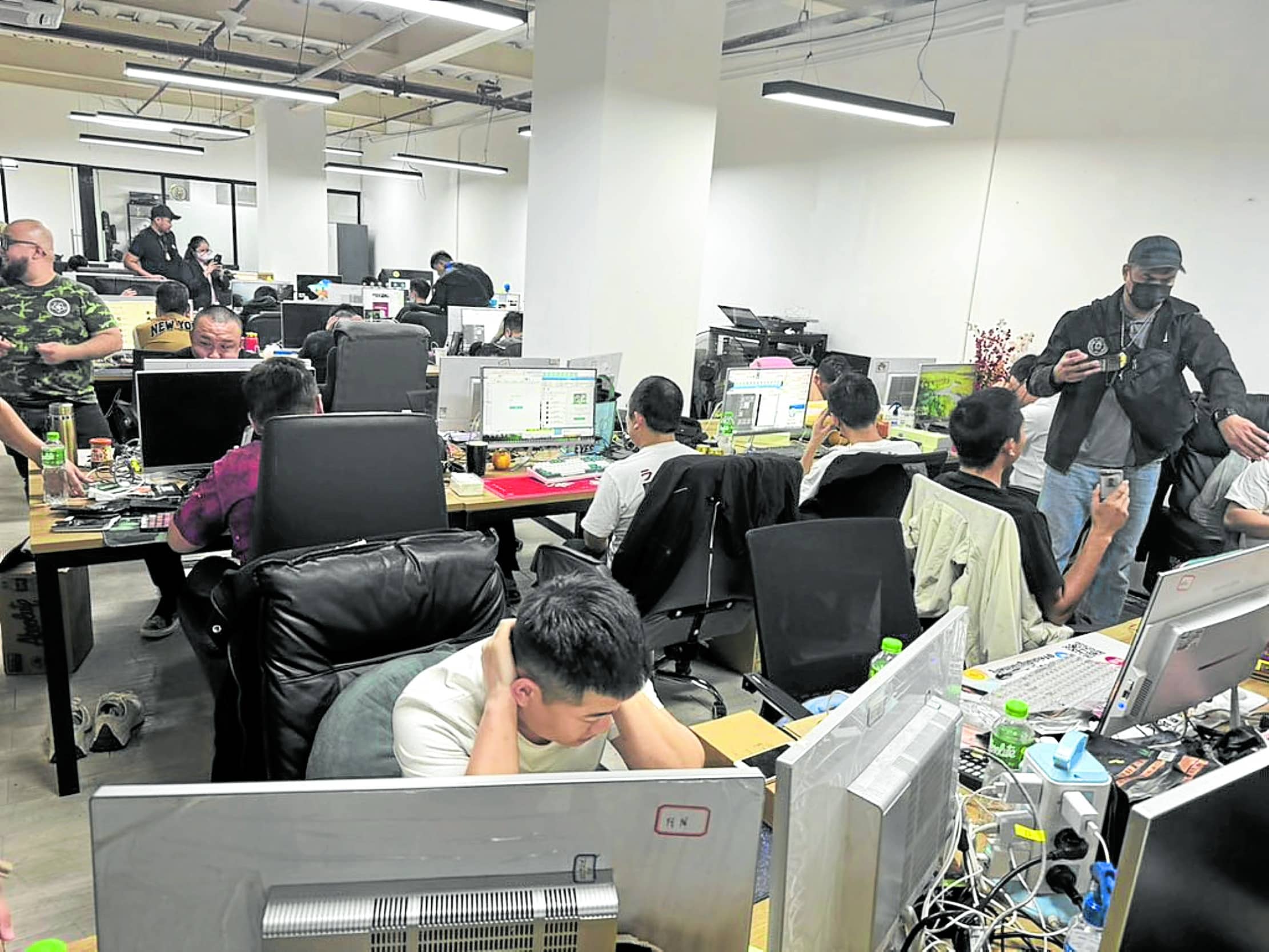PAOCC finds an illegal Pogo still operating near Senate

BUSINESS AS USUAL Authorities discover a Philippine offshore gaming operator, still operating and well-staffed, in a raid in Pasay City on Thursday, despite the ban ordered by President Marcos on July 22. —Photo from Presidential Anti-Organized Crime Commission
MANILA, Philippines — An illegal Philippine offshore gaming operator (Pogo) located near the Senate building in Pasay City was discovered in a raid conducted on Thursday, according to the Presidential Anti-Organized Crime Commission (PAOCC).
Winston Casio, PAOCC spokesperson, said the Pogo hub found at the Kimberhi Building on Macapagal Boulevard served as a “scam farm.”
The building is about 650 meters away from the Senate, which has spent months investigating criminal activities tied to the rise of Pogos during the Duterte administration.
READ: Raided illegal Pogo hub in Cebu nets 162 foreign workers
The raid was conducted by the PAOCC, agents of the National Bureau of Investigation, the Philippine National Police, the Bureau of Immigration, and the Department of Justice.
Article continues after this advertisementSimilarities
PAOCC Undersecretary Gilbert Cruz said various computers, mobile phones, and preregistered local and international SIM cards were found during the raid.
The hub, according to Cruz, was involved in a love scam and cryptocurrency racket, among others.
“This is similar to the one we raided in Bamban, the one by [suspended] Mayor Alice Guo. This is also similar to the one we raided in Porac and other Pogos we raided in Metro Manila,” he said in a television interview.
Casio said about 185 foreign nationals and 73 Filipinos were arrested “on suspicion of working for a scam farm inside the Kimberhi Building in Pasay City.”
Cruz said the PAOCC, the NBI and the Department of the Interior and Local Government would conduct further investigation on the raided Pogo hub to determine other violations, including its permit to operate.
During his third State of the Nation Address on July 22, President Marcos, saying their operations in the Philippines have ventured into illicit activities such as financial scamming, money laundering, prostitution, human trafficking, kidnapping, brutal torture and even murder, ordered a total ban on Pogos.
The ban includes the legally operating companies now called internet gaming licensees registered by the state gaming regulator, Philippine Amusement and Gaming Corp.